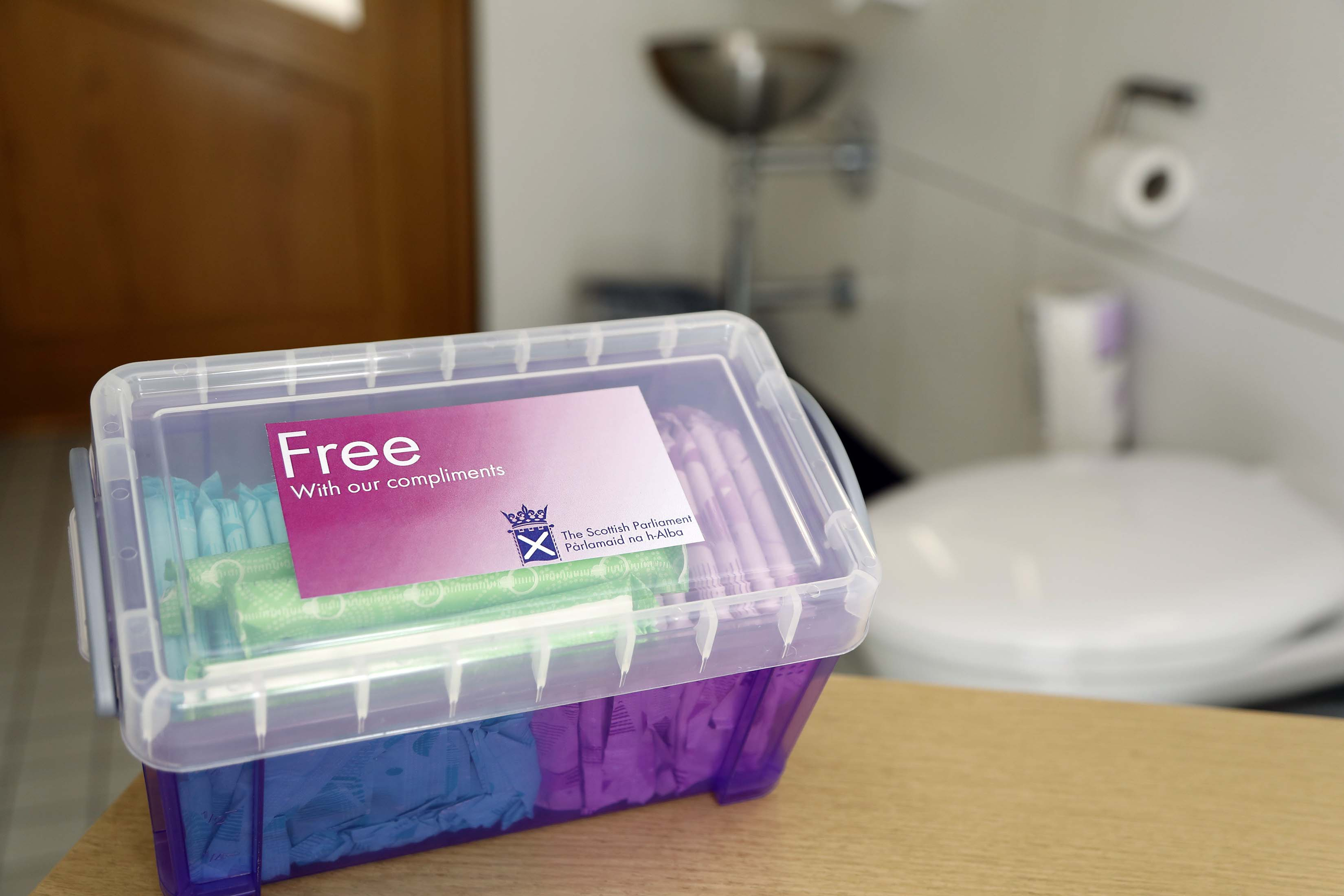
EXTRA funding to help tackle so-called period poverty by expanding the number of places where free sanitary products are available has been announced by the Scottish Government.
A total of £4 million is being made available to Scottish councils who will work in partnership with other organisations to meet local needs.
The products could be put in public buildings such as libraries and leisure centres, with funding for them available now and for the next financial year.
It follows the roll-out of a scheme offering free sanitary products in Scotland’s schools, colleges and universities last August.
Communities Secretary Aileen Campbell announced the funding on a visit to Move On in Glasgow, a FareShare food centre which is involved in distributing sanitary products to people on low incomes.
She said: “In a society as rich as Scotland, no-one should have to suffer the indignity of not having the means to meet their basic needs.
“We also want to continue to reduce the stigma and address the overarching gender equality and dignity issues that affect everyone who menstruates, regardless of their income.”
She was told by staff of one woman who used the £7 a month she saved from being able to access free sanitary products to pay for extra football training for her son.
She said: “This is about the juggling act that many women and families are having to do in life, and often it will be their needs that will go to the bottom of the pile.
“This is about breaking down barriers and enabling women to access sanitary products which are not a luxury product, they are a necessity for a very large part of a woman’s life, and so to enable them to access that freely because of their own financial challenges is something that I think is important and is supporting women.
“It’s also raising the profile of menstruation and periods and the challenges, the taboo nature of it… which I think can only be a healthy thing for society.”
Last May the Scottish Government provided £500,000 to FareShare to expand access to sanitary products through its network of third sector partners, following a successful pilot in Aberdeen.
Nicky McDonald, family food service manager at Move On, said being able to access free sanitary products makes a big difference to women on low incomes.
She said: “Lots of women are using their own means which might not be hygienic, they are having to use loo roll or socks.
“It’s demeaning and it stops them from doing things, and for younger kids they don’t want to go to school and it has a knock-on effect.
“Having it in schools will have a massive impact, and it’s taking the stigma away from it, the idea that it’s dirty or that you don’t talk about it.”
Kelly Parry, community wellbeing spokeswoman at council umbrella group Cosla, said: “Extending provision beyond education settings will help ensure that no-one experiences disadvantage, anxiety, stigma or embarrassment because of lack of access to suitable products.”

Enjoy the convenience of having The Sunday Post delivered as a digital ePaper straight to your smartphone, tablet or computer.
Subscribe for only £5.49 a month and enjoy all the benefits of the printed paper as a digital replica.
Subscribe